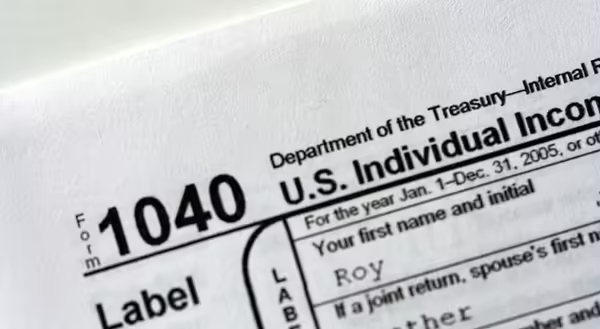
This post is the second of a two-part blog series analyzing the impact of expiring federal tax provisions on farm businesses and households in central Illinois. Part one explored the current financial characteristics of farms across the United States and in Illinois and further examined the impact of expiring income tax provisions. In short, the combined impact of those expiring tax provisions could raise tax liabilities for farm households by nearly $9 billion. This second part analyzes expiring federal business tax and estate tax provisions. As always, consult with a tax professional to fully understand how these tax changes may affect your operation. Taxes are an ever-changing landscape, so having a trusted tax professional is one of the best tools a farm operator can keep in their toolbox.
Like with the federal income tax, the Tax Cuts and Jobs Act (TCJA) of 2017 brought significant changes to federal taxes for businesses of all sizes. The TCJA introduced the qualified business income deduction (QBID) for business entities that pass their profits on to the household. This was done to create some parity between these businesses (which are taxed through the household) and corporations, which saw a reduction in the corporate tax rate. The QBID only applied to businesses that reported positive income, with businesses that reported losses ineligible to receive a deduction for the tax year. The United States Department of Agriculture’s Economic Research Service (USDA ERS) estimated that nearly 45% of all family farms in the United States benefited from the QBID, with large and very large farms having the highest share of eligibility. If the QBID provisions are allowed to expire in 2025, then eligible farms could see their tax liabilities increase. The ERS estimates that very large farms could see an over $87,000 increase in their tax liabilities. The impact would be less for smaller farms, with retirement farms potentially facing an $851 increase, and off-farm occupation households likely seeing a $1,010 increase.
The TCJA raised the limit for capital expense deductions from $500,000 to $1 million for the 2018 tax year, with limits in the following years adjusting for inflation. The TCJA also increased the bonus depreciation limit to 100%. However, to use bonus depreciation, a farm business must have invested at least $1.05 million in eligible capital. The expiration of the bonus depreciation limits would mainly affect very large farms, with the USDA finding that roughly ten percent had capital expenses that are eligible for bonus depreciation. Because of this, very large farms would see their tax liabilities increase by nearly $200,000. Only one percent of large farms had eligible capital expenses, and those farms could see their tax liabilities increase by approximately $25,000.
The final business tax provision from the TCJA that is set to expire is excess business loss (EBL) deduction, which increased taxes on certain businesses by limiting a noncorporate taxpayer’s ability to deduct certain business losses. Less than one percent of farm businesses in the United States report business losses that exceed the threshold and qualify for the EBL deduction. For those farm businesses that do qualify, the expiration of the EBL deduction could see a decrease in their tax liability.
The federal estate tax has been around since 1916 and applies to the transfer of a deceased person’s assets. It applies to estates exceeding a certain value threshold, with rates varying based on the estate’s size. The primary determining factor for whether an estate will be required to pay the federal tax is the exemption amount. Any estate that files a federal estate tax return above the exemption amount is subject to this tax. The TCJA increased the exemption amount to $11.18 million, which is set to revert to $6.98 million in 2025. Under ERS projections, if farm households grow at a medium pace, the decrease in the exemption amount will increase the percentage of farm estates that will be required to file a federal estate tax return (1.1% to 3.9%), and the percentage of farm estates that owe federal estate taxes will increase from 0.3% to 1.1%. The percent of off-farm, retirement, low and moderate-sales farm households that will owe federal estate taxes will all remain under two percent, while the percent of large and very-large farms that will owe federal estate taxes will increase to 7.3% and 8.5%. The decrease in the exemption amount is expected to generate a total of $1.2 billion.
This blog series has explored changes to federal taxes for farm businesses and households that are set to come into effect with the expiration of certain provisions from the Tax Cuts and Jobs Act in 2025. With most farm households taxed under the federal personal income tax, changes to the standard deductions, personal exemptions, and the child tax credit represent a significant shift in the financial landscape for many rural Americans. Additionally, changes to federal business taxes and the federal estate tax will likely increase the overall tax liability for many farm households across the United States. It is crucial for farm businesses and households to stay informed and proactive in understanding these changes by consulting with tax professionals and utilizing available resources. By doing so, they can maximize their benefits and ensure compliance, ultimately contributing to the long-term success and sustainability of their operations and livelihoods.